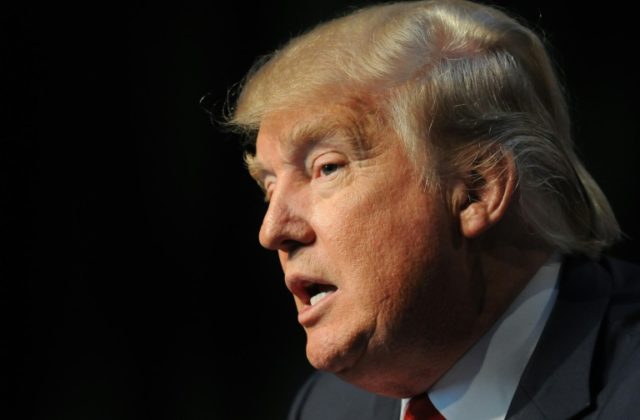As Donald Trump continues to hold his own against the onslaught of media attacks, Reuters has become the next outlet to pillory the presumptive GOP nominee, especially for his policy on Muslim immigration.
In a piece by a New York journalism professor, Trump is called a “demagogue” whose rhetoric is “part” of a “growing undercurrent of Islamophobia” in America. But even as the writer fans fears of this “Islamophobia,” his statistics rather prove there is little significant anti-Muslim sentiment in the U.S.
The Reuters writer, Mohamad Bazzi, a professor at New York University and former Middle East bureau chief at Newsday, spent several paragraphs at the outset of his Wednesday piece explaining Trump’s “Islamophobia,” claiming he is engaging in an effort to “tarnish an entire religion,” and arguing many Republican voters are just as bad.
According to Bazzi, “polling shows that while Trump is fanning the flames of anti-Muslim sentiment in the United States, [sic] he did not create this phenomenon.”
“He’s a demagogue who is taking advantage of deep-seated fears of Muslims among Americans, especially Republican voters,” Bazzi writes. “Trump is winning votes because he is willing to go further than any other candidate in tarnishing all Muslims.”
Eventually Bazzi gets to the point: “A growing undercurrent of Islamophobia… is making life difficult for the estimated three million Muslims in the United States. Hate crimes against Muslim Americans have surged since the November terrorist attacks in Paris and the December massacre in San Bernardino, California, which were both claimed by Islamic State.”
But after making the extreme claim that “hate crimes against Muslim Americans have surged,” Bazzi gives statistics that seems to belie his extreme claim.
Apparently thinking he is proving his point, Bazzi noted that in 2015 “civil rights groups recorded nearly 80 so-called bias incidents at mosques throughout the United States.” This, Bazzi says with alarm, is “highest number logged since two organizations, including the Council on American-Islamic Relations, began tracking such cases in 2009.”
The writer also points out these 80 incidents from 2015 represents a huge increase over the far lower number of 20 cases recorded in 2014.
But again, his number is 80 cases.
In a nation of over 300 million citizens, Bazzi is alarmed at 80 incidents of anti-Muslim sentiment.
Eighty.
And his examples are not outright hate crimes, either, but are instead “bias incidents.”
Indeed, the FBI’s hate crime statistics reveals that the numbers of so-called hate crimes against Muslims is rather tiny. In 2014, for instance, the Bureau logged only 1,140 victims of anti-religious hate crimes, but of this number, almost 57 percent of the victims were Jewish, not Muslim. In fact, Muslims only made up 16 percent of the victims of anti-religious attacks.
And again, it was a tiny 1,140 victims in a country of more than 300 million people.
Regardless, to Bazzi, this statistically-insignificant number of cases in a nation of 300 million represents the results of the “stereotypes and xenophobia perpetuated by Trump and other demagogues.”
Despite his tiny statistics, Trump’s “stereotypes” and the “xenophobia” are shaping “a social climate in which many Muslims and Arabs are treated as potential terrorists,” Bazzi says.
Bazzi next repeats the results of a recent poll of Americans who feel Islam is at “odds with American values and way of life.”
The Reuters writer decries the result, saying that it runs contrary to what Muslims really want:
One irony is that many Muslims around the world want to foster a better relationship with the United States and the West. In a long-term Gallup poll, conducted from 2006 to 2010, residents of 39 majority-Muslim countries were asked whether they supported greater interaction with the West. A majority of people in 38 of the countries surveyed (all except Afghanistan) viewed closer relationships as a benefit, rather than a harm.
Meanwhile, despite all these Muslims Bazzi says yearn to be friends with America, the feds have arrested 103 Muslims in the U.S. who were trying to go to Syria to join ISIS. That’s 23 more Muslims who were arrested in the attempt to kill westerners than Bazzi claimed were treated badly by Americans.
Bazzi ends his piece attacking both Trump and Americans.
“While the rest of the world is shocked by Trump’s declaration that ‘Islam hates us,’ his blunt talk resonates with many Republican voters. And it is a major reason that Trump secured the Republican presidential nomination — a victory partly built on the demonization of Islam.”
After reading Bazzi’s article, one can only come to the conclusion that there is a lot of hate and fear being stirred in the U.S. But it seems those fears are being stirred by Mohamad Bazzi and Reuters, instead of Donald Trump and Republicans.

COMMENTS
Please let us know if you're having issues with commenting.